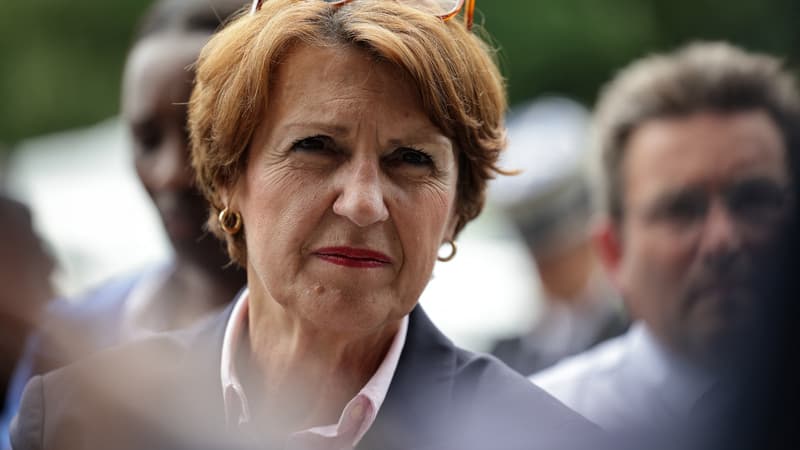Annie Genevard returns to the Ministry of Agriculture. Based in rue de Varenne since September 2024, the former Franche-Comté MP for Doubs resisted multiple political upheavals under the successive governments of Michel Barnier, François Bayrou and now Sébastien Lecornu, remaining faithful to her second government despite the contrary opinion of the Republicans, her parent company.
And farmers eagerly await his return to control. Agricultural unions, fearful of seeing their demands lost in the political fog, hope to find lasting contacts in the government and budget perspectives, while several urgent files – including the EU-Mercosur agreement and animal diseases – pile up on the minister’s desk.
• The EU-Mercosur trade agreement
This is a source of great anger among French farmers: harshly judged by agricultural unions, the trade agreement between the European Union and the South American Mercosur countries is rapidly approaching its goal. The European Commission, driven by some of its fierce defenders, such as Germany and Spain, hopes to get the green light from member states before the end of the year.
For much of the French agricultural world, particularly livestock farmers, the prospect of the entry into force of the EU-Mercosur agreement remains an explosive issue. The unions have unanimously promised new mobilizations – starting this Tuesday by the Paysanne Confederation – to make their voices heard. They particularly deplore the ambiguity of Emmanuel Macron, who, after having long opposed it, suggested that he could sign the treaty under certain conditions.
Brussels has tried to appease France by putting “safeguard measures” on the table that, although they could help change the position at the top of the French State, have so far not really convinced farmers.
• Animal diseases
Another urgent problem: the spread of certain animal diseases on farms, starting with lumpy skin disease (LCD), which attacks livestock. Until October 13, 80 outbreaks had been detected in France in fifty agricultural holdings since the appearance of the disease on French soil last June. Although the epizootic outbreak has been stopped in the two departments of Savoy, this Saturday a first outbreak was confirmed in the Jura, in a sector until now saved.
In addition to vaccination and limiting animal movements, the fight against lumpy dermatosis implemented by the Ministry of Agriculture is based on a “depopulation” strategy through the preventive slaughter of all animals on affected farms. This systematic slaughter, highly questioned by the Rural Coordination and the Peasant Confederation who demand a new health protocol, nevertheless arouses strong emotion in the agricultural world.
Breeders, who receive compensation for slaughtered animals, also expect responses from the State regarding compensation for production losses.
• Negotiations for the new CAP
Another European issue is shaking up the French agricultural world. Last July, the European Commission unveiled its proposals for the 2028-2034 EU budget, starting negotiations with the European Parliament and the EU Council. Brussels has in particular proposed a broad reform of its agricultural component, which houses the common agricultural policy (CAP). It is the largest item of EU spending and allows, in particular, to pay direct aid to farmers.
Enough to provoke the ire of European agricultural unions, including the FNSEA and the Rural Coordination on the French side, who deplore a 20% drop in the global allocation. This figure is questioned by the European Commission, which instead refers to a new budgetary architecture and a transfer of certain sums to the cohesion policy. Brussels plans, among other things, an integration of the common agricultural policy into a large single fund instead of dedicating its own budget to it.
Several months of difficult budget negotiations have begun within the EU, while France’s voice is weakened by its political instability. This issue “will occupy us for the next two years” and “we need a French government at the helm” that does not change “every three months or every six months,” the president of the FNSEA, Arnaud Rousseau, insisted in mid-September.
• The consequences of the Duplomb law
The so-called Duplomb law, which shook political debates at the beginning of summer with the failed return of acetamiprid, risks being heard again. The FNSEA and the Rural Coordination, convinced supporters of the Duplomb law unlike the Peasant Confederation, firmly await the publication of the decrees in order to be able to apply all the measures aimed at “eliminating limitations” on farmers.
Above all, the debate on acetamiprid is not yet completely closed. If the Duplomb law authorized the reintroduction of this pesticide from the neonicotinoid family, prohibited in France but authorized in the rest of Europe, this provision was finally censored by the Constitutional Council. The FNSEA hopes to convince the executive to present a new bill, with a single article, to try to once again pave the way for the return of acetamiprid.
Furthermore, opponents of the Duplomb law managed to gather more than 2 million signatures for the petition registered on the National Assembly website. In mid-September, members of the Economic Affairs Committee voted to examine this petition calling for the repeal of the Duplomb law, which could lead to a debate in a public session in the National Assembly.
Source: BFM TV


